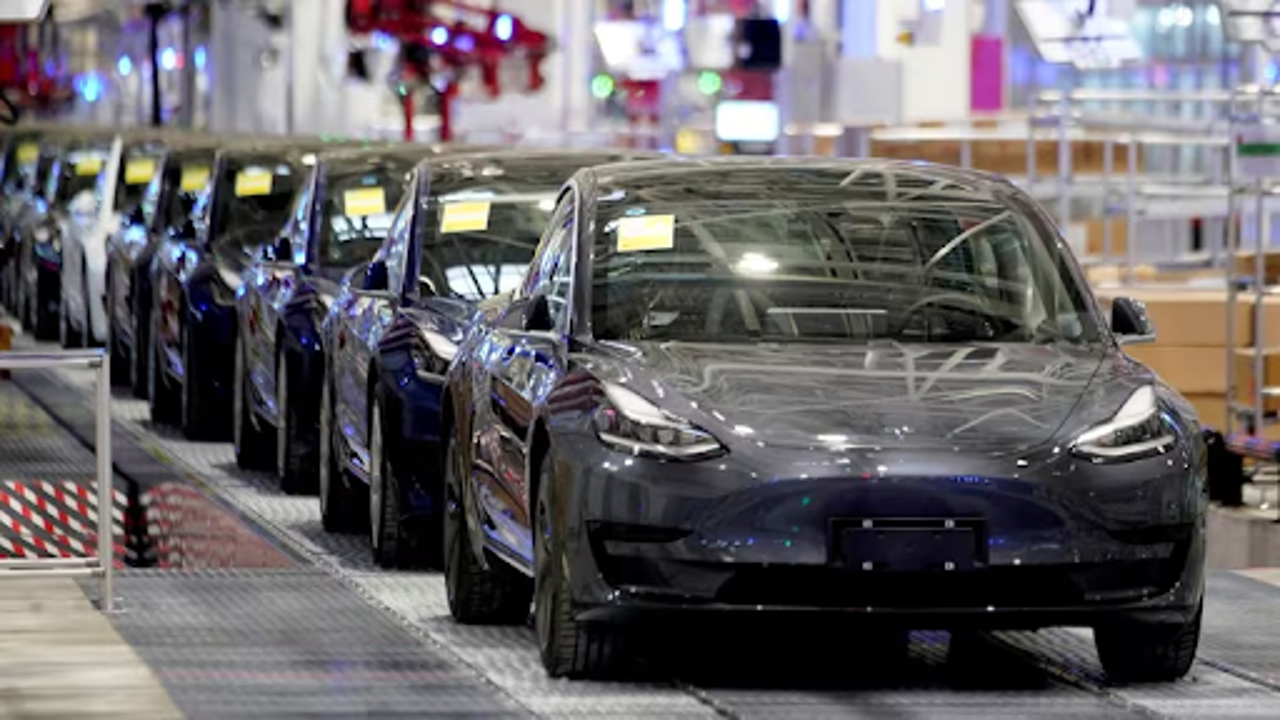
A January 2020 photo captures Tesla Model 3 cars, produced in China, at a delivery event held at Tesla's Shanghai factory. According to a Canadian government source, Tesla had reached out to Ottawa seeking reduced tariffs on their China-made vehicles before the announcement of the latest tariff measures. (Aly Song/File/Reuters)
Tesla recently approached the Canadian government with a request to reduce the tariffs on its electric vehicles (EVs) manufactured in China, according to a Canadian government source. The request came just before Canada announced that it would impose a 100% tariff on all Chinese-made electric vehicles, including those made by Tesla. The new tariffs will take effect on October 1st.
This decision aligns with the United States' similar move. The Canadian government justified the tariffs by accusing China of intentionally creating an overcapacity in the EV market. This overcapacity, according to Canadian officials, is a result of China's state-directed policies, which have been seen as distorting the global EV market. Ottawa had already indicated in June that it planned to impose such duties on Chinese vehicles.
Tesla, which exports its Model 3 sedan and Model Y crossover from its Shanghai factory to Canada, asked for a reduced tariff similar to what it received in the European Union (EU). Earlier this month, the EU had set a 9% tariff on Tesla’s China-made vehicles, significantly lower than the 36.3% rate applied to other Chinese EVs.
In contrast, Canada, along with the United States, considered a broader range of factors when determining tariffs. This included not just subsidies but also China's industrial overcapacity, non-market policies, and environmental and labor standards.
Tesla’s attempt to negotiate a lower tariff was reportedly made before Canada’s official announcement. Since the announcement, the automaker has not made any further contact with Canadian officials. When contacted by Reuters, Tesla did not provide a comment on the situation.
The office of Canada’s Finance Minister, Chrystia Freeland, who oversees tariff policies, also declined to comment on Tesla's discussions with the government.
The imposition of tariffs comes as Canada has seen a significant increase in the importation of Chinese-made automobiles. Tesla began shipping vehicles from Shanghai to Canada in 2023, contributing to a 460% year-over-year rise in car imports through the Port of Vancouver. However, Tesla does not publicly disclose the number of vehicles it exports from China to Canada.
The United States has also been toughening its stance on Chinese-made products. In May, President Joe Biden announced a major increase in tariffs on Chinese electric vehicles, raising them to 100%. Additionally, tariffs on semiconductors and solar cells were doubled to 50%, while new 25% tariffs were introduced on lithium-ion batteries and other strategic items. However, the implementation of these U.S. tariffs has been delayed until September, and there is speculation that some of the duties may be softened before they take effect.
Other automakers are also assessing the impact of Canada's new tariffs. Volvo, for instance, has stated that it is evaluating how the increased tariffs will affect its business in Canada. The Swedish company imports several models, including the EX30, XC60, and S90, from China to Canada, but it has not disclosed specific numbers.
Swedish electric vehicle manufacturer Polestar, which is partly owned by Volvo and China's Geely, is also reviewing the potential impact of Canada's tariffs. Polestar currently ships its Polestar 2 model from China to Canada.















